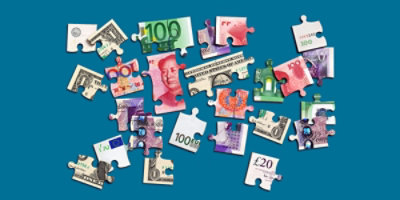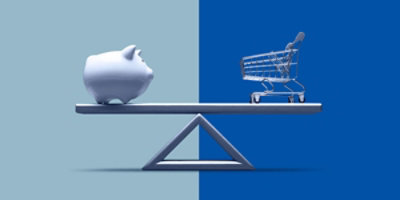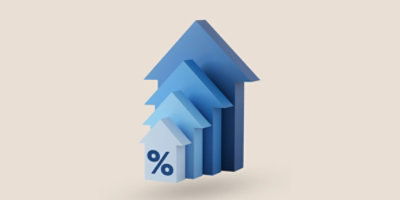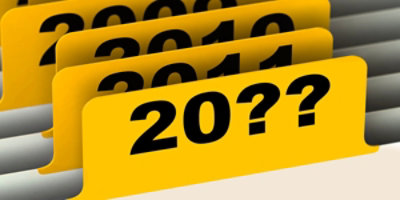-
Personal Banking -
Insights
What You Should Know About Debt
Consumer debt can be an impactful component in our financial lives. Whether it's a home mortgage, a credit card balance, a car loan or a home equity line of credit, debt impacts our budgets and influences major life decisions.
What Is Debt?
A simple definition of debt is money that you have borrowed, or the state of owing money. Many people use debt to make purchases and pay for them over time rather than paying in cash up front.
But debt isn't always simple. While it can have a negative impact on finances, it can also be a crucial part of building a good credit score.
Here's some aspects of debt that are important to understand.
Principal & Interest
It's important to make sure you understand two general components that make up debt.
Two basic components of debt are:
- Interest is an amount that a borrower pays to a lender, so that the lender is rewarded for their willingness to loan the funds. Interest is typically structured as a certain percentage built into a loan repayment schedule.
- Principal is the original amount of a loan before interest is added to it.
In short, the amount of money a person is borrowing is known as principal while the amount it's costing them to borrow that money is known as interest. These two things combine to make up the amount of debt a person is in.
Types of Debt
There are a number of different types of debt. The type you use depends on what you’re purchasing and how you plan to use the funds lenders provide to you.
Secured Debt
Secured debt is a type of debt that is backed up, or secured, by something valuable, also known as collateral. For example, a home mortgage loan is typically secured by the home it’s used to purchase. An auto loan is usually secured by the vehicle.
If the borrower defaults (or stops making payments) on secured debt, the lender can seize the collateral to recoup its losses. Because that collateral reduces the lender’s risk, secured debt typically has lower interest rates than other types of debt.
Unsecured Debt
Unsecured debt does not require any collateral. Instead, the lender decides whether to accept the risk of loaning money by evaluating the borrower’s creditworthiness. Lenders may do this by reviewing the borrower’s credit history, income, other debts and other factors.
Credit cards and personal loans are usually unsecured debt. Because the lender is taking on more risk with unsecured debt, interest rates are typically higher than with secured debt.
Revolving Debt
Revolving debt is a type of open-ended credit that remains available to the borrower, even as they pay back the balance. Revolving debt often takes the form of a credit card or a line of credit, which allows a borrower to use credit up to a certain limit. When the borrower pays off the balance, they continue to have access to the credit on an ongoing basis.
Installment Debt
Installment debt is a type of loan that is provided in a lump sum, and the borrower repays it in regular payments (or installments) over time. Many loans are installment loans, such as most mortgages, auto loans, student loans, personal loans, payday loans, and buy-now-pay-later loans.
What Is Bad Debt?
When you owe money to creditors, a portion of your income is essentially already spent before you even earn your paycheck. Borrowing money is a lot easier than paying it off, and many people fall into the trap of getting into more debt than they can comfortably repay.
Bad debt is debt that hampers your ability to meet financial goals and live free from financial stress.
When Is Debt Considered Good?
However, not all debt is bad debt. In general, debt can be good if you can comfortably repay it, and if it allows you to make a purchase that will appreciate over time.
For example, mortgage debt, when the payments are within your budget, is generally considered good debt because the value of real estate typically increases over time. Similarly, student debt can be good if it allows you to get an education that will lead to a career you couldn’t otherwise have, and if you can comfortably repay it without sacrificing other financial goals.
Good debt, if handled correctly and paid on time, can help you build a higher credit score.
How to Pay Off Debt
If you are overwhelmed with bad debt, paying it off requires a plan and a commitment. The first step is to stop accumulating new debt. If you have debt that has become challenging to repay, start by developing a plan for paying it down—and stick to the plan.
Some of the most common approaches to paying off debt include:
- Avalanche method. The debt avalanche strategy focuses on paying off the highest interest debt first. With this method, you funnel as much extra money as possible toward the highest interest debt, while making minimum payments on all other debts. When the highest interest debt is paid off, you move to the debt with the next highest interest rate.
- Debt consolidation. If you have multiple debts, you can use debt consolidation to combine all those debts into one monthly payment. Some people consolidate debt with a personal loan or a credit card with a low- or no-interest promotional offer. With debt consolidation, you only have to worry about keeping up with one payment each month, and you can focus on paying it down as quickly as possible. However, this method should only be utilized with careful planning and with the help of an experienced wealth planner. It's also important to be careful about using a debt consolidation service, as some of them have been shown to be fraudulent.
Keep in mind that paying off your debt is only one part of reaching financial wellness. We've compiled some tips here to help you improve your financial health.
Debt FAQs
Is it okay to pay off debt?
Yes, it’s ok to pay off debt. It’s almost always a good idea to pay off high interest debt. Instead of spending money on interest payments, you can build up savings or invest that money for a stronger financial future.
However, the decision about whether to pay off all your debt depends on the type of debt you have, the interest rate, and other variables.
For example, imagine that you have a mortgage of $100,000 with a 3% interest rate and enough money in an investment account to pay off the mortgage. However, if your investment account is earning an average of 7%, it may not be a good idea to cash out to pay off your mortgage. By leaving the money in your investment account, you’re earning more than you would save by paying off the mortgage.
Also, don't forget that having debt helps you build a credit history and maintain a healthy credit score. Referring to our credit score article that's linked above can help you decide what debt you should pay off and what debt you might want to carry.
Is it better to be debt free?
Whether it’s better to be completely debt free depends on your personal preferences and goals. For many people, having no debt provides psychological freedom and carrying debt involves considerable stress. For others, having affordable debt may fit into their long-term financial plans without causing undue anxiety.
How do people get into debt?
People get into debt by borrowing money, often to make purchases they wouldn’t be able to afford otherwise. Taking on manageable debt for items that will appreciate over time, such as a home or an education, can be part of a solid financial plan. However, people get into unmanageable debt when they borrow more than they can afford to comfortably repay, often at high interest rates.
Building a budget can help you avoid the pitfalls associated with too much debt.
What happens to debt after death?
When a person dies, it’s common to wonder whether their debt will pass to their family members. But typically, survivors of deceased loved ones are not responsible for their debts unless they shared legal responsibility for paying those debts, such as being a co-signer or a joint account holder.
Instead, the money and property left by the deceased person will typically be used to repay their debts. If they have no money in their estate, the debts may go unpaid.
What happens if you marry someone with debt?
If you marry someone who has debt, their debts do not automatically become your responsibility. When a spouse has debts before marriage, they maintain responsibility for those debts after the marriage. However, if you cosign a loan or open a joint credit card with your future spouse before marriage, you will both be responsible for that debt.
While marrying someone with debt doesn’t make you legally responsible for repaying that debt, it can have an impact on your household finances. If your spouse is overextended with debt they incurred before the marriage, they may not be able to contribute to the household finances in the way you would have expected.
This article is for general information and education only. It is provided as a courtesy to the clients and friends of City National Bank (City National). City National does not warrant that it is accurate or complete. Opinions expressed and estimates or projections given are those of the authors or persons quoted as of the date of the article with no obligation to update or notify of inaccuracy or change. This article may not be reproduced, distributed or further published by any person without the written consent of City National. Please cite source when quoting.
Loans and lines of credit are subject to credit and property approval. Additional terms and conditions apply. Not all applicants will qualify. Home equity lines of credit are not available in Texas.





